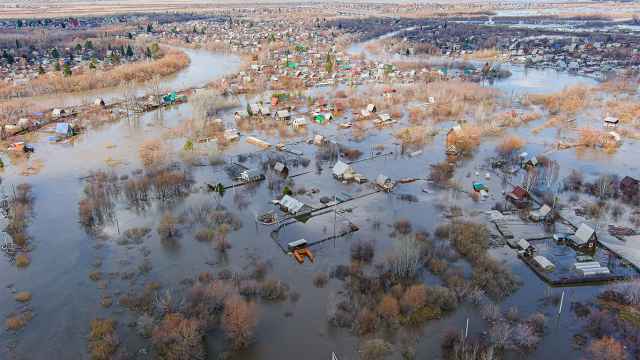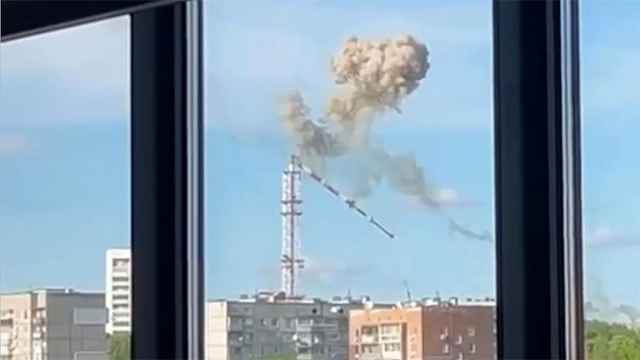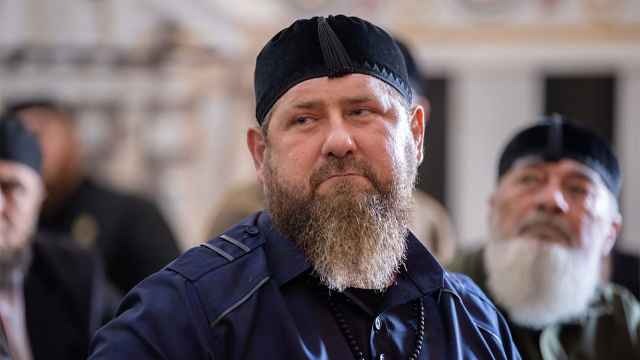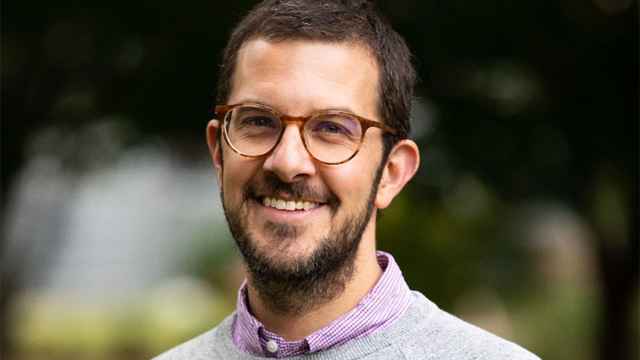Politicians and analysts expect a major reshuffle of the government when President-elect Vladimir Putin takes office in May, with a new Cabinet possibly including members of the systemic opposition.
Putin and his top advisers have sent mixed signals as to the makeup of the incoming government, but political observers agree that the new power structure will be different to reflect new political realities and Putin's campaign promises.
"There is a need for someone who will not only make decisions that will motivate entrepreneurs, but will be able to prove his point of view and make the prime minister and the president listen to him," said Igor Igoshin, a United Russia deputy on the State Duma's economic policy committee.
He said "very serious changes" to the Cabinet's composition are needed and are "inevitable."
"It is no longer possible to respond to modern challenges to development with inertia," he said, referring to Russia's dependence on oil and gas export.
He said not all ministers would be replaced, such as Deputy Prime Minister Vladislav Surkov, Finance Minister Anton Siluanov and Economic Development Minister Elvira Nabiullina, whose "positions were created for the new Cabinet" in a recent shakeup.
As for the prospects for a multiparty government, Igoshin was not optimistic, predicting that "when functional and political goals will not coincide, self-important positions of little use may be introduced for the sake of political need."
Mikhail Vinogradov, an analyst at the Petersburg Politics Foundation think tank, said he expected there to be a struggle behind the scenes and that the process would remain far from transparent.
"Neither the course, nor the composition of the government is yet clear because on the one hand there is a need for change, but on the other the pro-Putin majority that formed during the election resists change," Vinogradov told The Moscow Times.
"The system of staff appointments will remain nontransparent, situational and driven by fights among the clans," he predicted.
He noted that Putin and former Kremlin chief of staff Sergei Naryshkin have given two "absolutely opposite signals concerning the government's composition" in recent months and that "it is not clear who to believe."
Naryshkin has said the government will be "absolutely new" and "young," while Putin said "the core will change," Vinogradov said.
"Almost all the ministers risk losing their posts and no one feels safe," Vinogradov said. "The most acute fight will be for the flow of finances."
The government will neither consist only of United Russia members, nor will it be a "coalition," but some "positions may be given away to systemic opposition," he said.
One concrete change he predicted was that presidential aide Arkady Dvorkovich will move over into the economic sector of the government.
Sergei Ivanov, a senior State Duma deputy with the Liberal Democratic Party, said the government will most "likely be remarkably transformed," as the current administration would be incapable of fulfilling Putin's election promises having "compromised themselves."
Ivanov said it was "quite possible" that members of parties other than United Russia would become ministers.
Prominent sociologist and United Russia member Olga Kryshtanovskaya told The Moscow Times that changes in the Cabinet's composition would likely be "very significant," with Putin "getting rid of unpopular ministers."
She said a new kind of minister who "knows how to talk to the people and explain his policies" is in high demand.
She agued that Russia would be better off with a government where everyone is a member of the ruling party, United Russia, instead of some form of "coalition government," which will "pull [the country] in different directions like a swan, a crawfish and a pike," a reference to a well-known fable by Ivan Krylov.
Kryshtanovskaya noted that currently only three government ministers are members of United Russia.
A government reshuffle, however, would be directed at "modernization" and boosting "efficiency," as well as satisfying "society's demand for openness and transparency," she said.
Kryshtanovskaya praised outgoing President Dmitry Medvedev's idea of a "big government," open to advice from experts outside the government, saying that approach is more "likely to be efficient."
For a "big government" to work, she said it would have to accomplish two main tasks — presenting thorough analysis before making decisions and listening better to feedback from people.
The Constitution that the president must submit a candidate for prime minister to the State Duma within two weeks after the inauguration. The Duma has to approve or reject the candidate the following week.
Putin has repeatedly said that if he was elected president, Medvedev would be his prime minister.
After approval by the Duma, the prime minister then proposes candidates for deputies and federal ministers to the president within a week.
Putin and Medvedev spent several days over the weekend in Sochi discussing the makeup of the new Cabinet, a Kremlin source RIA-Novosti on Sunday.
Former Finance Minister Alexei Kudrin has said he expects fully two-thirds of the Cabinet to be replaced.
Vladimir Putin hinted last Wednesday that Deputy Prime Minister Igor Sechin, who oversees the oil and gas sector, would survive any reshuffle of senior government posts, Reuters reported.
Kudrin and billionaire presidential candidate Mikhail Prokhorov have publicly refused to be part of a new Cabinet. Culture Minister Alexander Avdeyev said in January that he would not return to his position in the new Cabinet.





